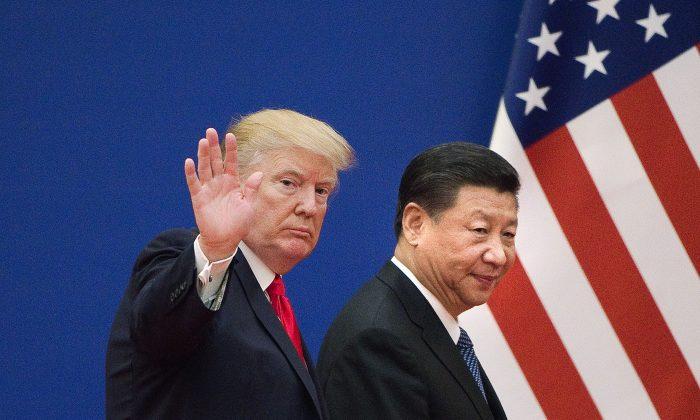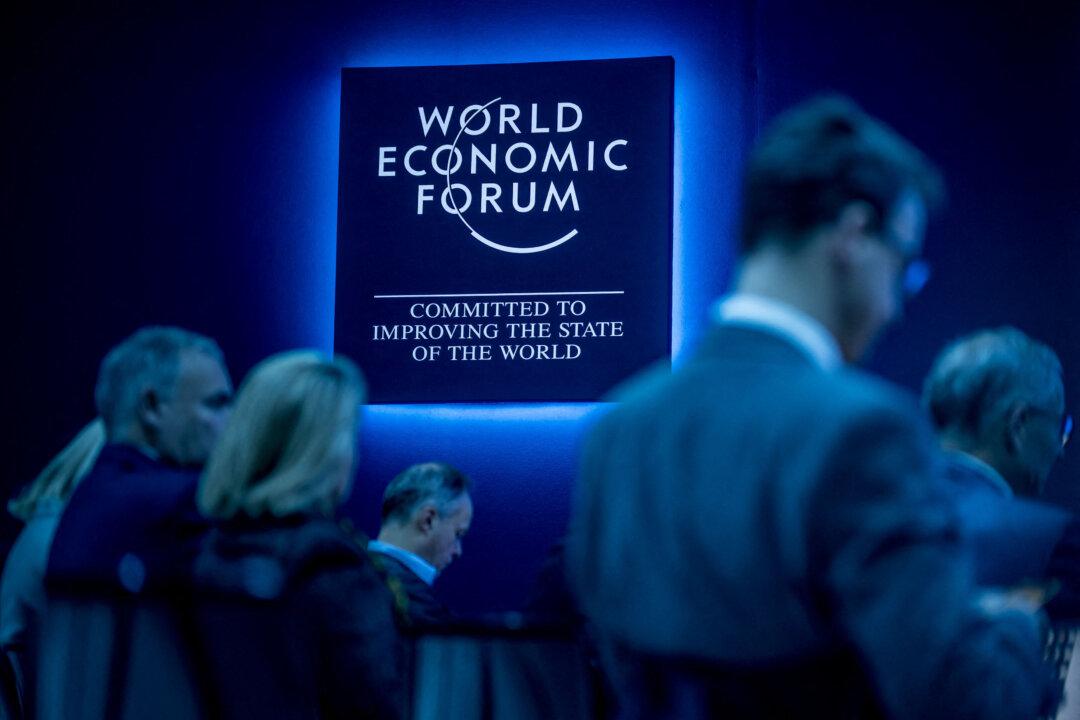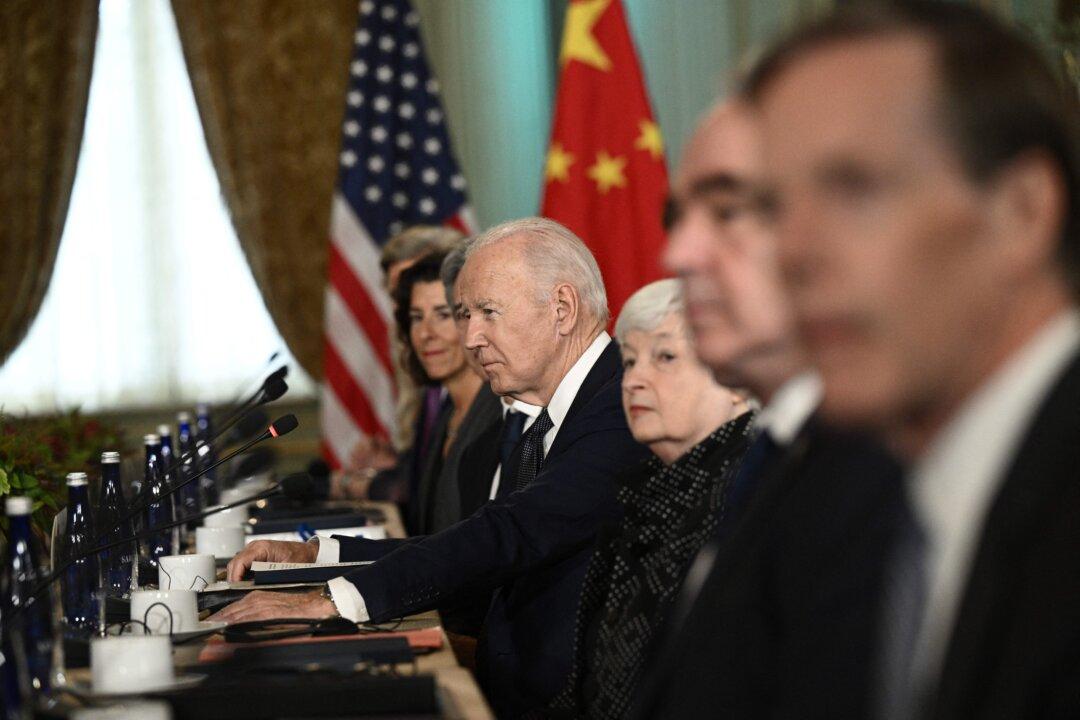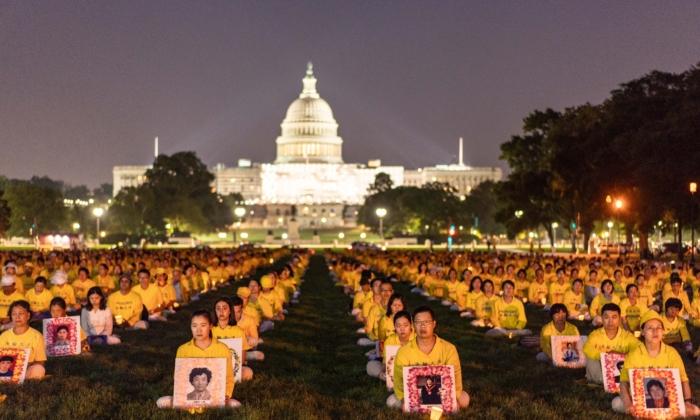The Trump administration is deadly serious about containing the Beijing regime’s “empire and aggression,” to use Vice President Mike Pence’s phrase from the recent ASEAN summit in Singapore.
On the economic front, this containment ranges from straightforward tariffs on Chinese goods to a broader effort, in concert with our allies, to call China to account for its industrial subsidies, its forced transfer of technology, and its closed markets.
This is threatening to the Chinese Communist Party on three levels.
First, President Donald Trump is directly threatening Beijing’s predatory—and enormously profitable—trade practices. By flagrantly violating the rules of the World Trade Organization (WTO), and taking advantage of America’s open markets over the past 20 years, Beijing has orchestrated the biggest transfer of wealth in human history. Much of this wealth has wound up in the pockets of the Communist Party elite and their extended families and cronies.
Second, by demanding that Beijing institute reforms, such as allowing foreign investment and the protection of intellectual property, Trump is threatening the survival of the Chinese Communist Party that rules China. To be effective, such reforms require the rule of law and an independent judiciary, and as such, they are absolutely incompatible with China’s current system of government, which puts the Party above the law.
Third and most seriously, Trump is threatening Xi Jinping’s “China Dream”—his grand strategy of dominating high-tech by 2025 and the world by mid-century—by demanding an end to such things as forced technology transfer. Such actions not only hinder China’s advance, they endanger Xi’s hold on power, which depends on delivering his promised “great rejuvenation of the Chinese nation.”
Even so, on the narrow issue of trade, I believe that we will soon reach a temporary accommodation. I say this because, with all domestic economic indicators heading south, Beijing is increasingly desperate to make a deal.
In fact, investor confidence is so low that a Chinese official recently tried to calm the waters by reassuring them that “China is not Turkey!”
That’s like the captain of a sinking ship reassuring his panicked passengers by saying: “Don’t worry. We are not the Titanic!”
The forthcoming agreement with China will, I believe, primarily consist of a promise by Beijing to reduce its trade surplus with the United States, according to some mutually agreed upon timetable. It will be relatively easy for China to act on this commitment—and for the United States to monitor whether it is actually doing so.
China, for its part, will simply order state-owned companies to purchase more U.S. goods and services. American exporters of energy and agricultural products, heavy equipment, and passenger planes will get a big boost. And the U.S. Department of Commerce will be able to tally up the actual value of the shipments leaving our shores.
We can already see the outlines of such an agreement in Trump’s 2017 demand that China reduces the trade deficit by $200 billion by 2020. China countered with an offer of $70 billion earlier this year. Although this was rejected by Washington as insufficient, odds are that in Buenos Aires or soon thereafter, Trump and Xi will meet in the middle.
While such an arrangement is exactly the opposite of free trade, it’s probably the best outcome we can hope for—at least as long as China is under the control of a one-party dictatorship that does not share the free world’s values and institutions.
As part of the forthcoming arrangement, Beijing may well promise—as it did when it first joined the WTO in 2001—to carry out market-oriented reforms. Any actions it takes in this regard will be symbolic at best, however. The reason is that most of the things we are asking China to do, such as allowing unfettered foreign investment and protecting intellectual property, would in practice require a fundamental restructuring of the political system. That’s simply not going to happen.
Even if Xi were serious about ordering market-oriented reforms (and not simply engaging in yet one more strategic deception), he has his own “deep state” to contend with. The writ of the Party leader, it is said in China, doesn’t extend beyond the walls of the Zhongnanhai leadership compound. Fundamental reforms would threaten the power of Party officials at every level of government, and so would be resisted by every provincial, municipal, and county Party committee in China.
Finally, regardless of whatever promises Xi might make, we can expect Chinese cyberattacks, predatory investment, and illicit technology transfer to continue. China will continue to build up its military with an eye to a future confrontation with the United States in Asia. It will continue its island-building in the South China Sea and its “One Belt, One Road” initiative.
All of these things are key to achieving Xi’s China Dream, which means that they are essentially non-negotiable.
We have to understand that, whether we like it or not, we are in for another long twilight struggle with a tyrannical regime that wants to replace us as the preeminent power in the world. If the Great Game of the 20th century was between the United States and the Soviet Union, the Great Game of the 21st century is between the United States and the People’s Republic of China. And the PRC would like to see a world filled with Cubas and North Koreas, rather than Costa Ricas and South Koreas.
The good news is that the United States now has a whole-of-government response to China’s “empire and aggression.”
As part of this response, the Department of Homeland Security is executing a new cybersecurity strategy to help U.S. companies become better at defeating cyberattacks and protecting their intellectual property. We are building up our Navy and working with allies in the Indo-Pacific to preserve freedom of navigation in the South China Sea and elsewhere. And we are restricting Chinese investment in, and loans to, companies with sensitive technology in Silicon Valley and elsewhere.
That would solve the trade deficit once and for all.






Friends Read Free